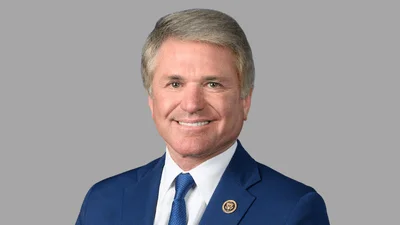WASHINGTON, D.C. - Ways and Means Committee Chairman Charles B. Rangel (D-NY) issued the following statement on President Bush’s budget for fiscal year 2009.
"President Bush’s budget proposal is what we expected, but not what we need. American families are desperately looking for leadership that will bring about change to address growing concerns with the economy, the lack of affordable health care and the continuing wars in Iraq and Afghanistan. Unfortunately, the Bush budget offers few changes from years past and little hope for strengthening opportunities for working families in the years to come.
"Rather than embrace his last months in office as an opportunity for bipartisan achievements on critical areas such as tax reform, health care and economic security, President Bush’s budget offers more of the same - expensive tax cuts for the wealthy, devastating cuts to Medicare, erosion of employer-based health care, retirement benefits, Social Security privatization and cuts to other social services.
"While this Administration’s legacy will be written in red ink, we can draw strength in the opportunities that lie beyond Bush’s term in office. Under this new Democratic Congress, we have begun to reestablish fiscal responsibility to end the years of deficit spending that will hurt future generations. We have renewed our commitment to working families by raising the minimum wage for the first time in a decade and pushing for long overdue discussions on comprehensive tax reform to restore equity and fairness to our tax laws.
"In fact, this budget offers little or no mention of the pressing need to simplify our tax laws. Despite the attention the President gave this issue in the beginning of his term, we have not seen any concrete proposals or leadership on tax reform during Bush’s seven years in office. I would argue that it is not too late to do the right thing and reach out to Congress to begin serious discussions and restore equity and fairness to our tax code. I have introduced a reform proposal that would cut taxes for more than 90 million lower- and middle-class families while also reducing the corporate tax rate to help keep our companies competitive internationally. I plan to continue this overdue discussion with hearings in the near future and I strongly urge this Administration to use its remaining time in office to be a partner, not a roadblock, toward establishing bipartisan consensus on tax reform.
"Whereas the Bush budget is largely silent on the critical issue of tax reform, it was loud and clear in calling for deep, dangerous cuts to Medicare. We should be working together to strengthen, not undermine, Medicare for future generations. The drastic reductions President Bush proposed would threaten coverage for millions, force the closure of hospitals, and discourage other healthcare providers from serving seniors or elderly patients. With more than 46 million uninsured Americans, Congress and the Administration must work to expand, not limit, American families’ access to reliable, affordable health care and this budget would only exacerbate this growing problem.
"While we must look to longer-term policies to strengthen opportunities for working families, we cannot ignore the importance of immediate action to improve our economy. Right now, Congress is finalizing a bipartisan economic stimulus package that would deliver much-needed tax relief to keep our economy strong.
"The groundbreaking economic stimulus package would provide needed relief to the millions of families who work hard and pay employment taxes, but do not earn enough to have income tax liability, however, we must also help those who have lost their jobs through no fault of their own. As last week’s report indicated, our economy shed jobs for the first time in years, which means that an increasing number of families will find it harder to make ends meet while they struggle to find new employment. If we are to stem this downturn before it worsens, we must extend unemployment benefits now."








